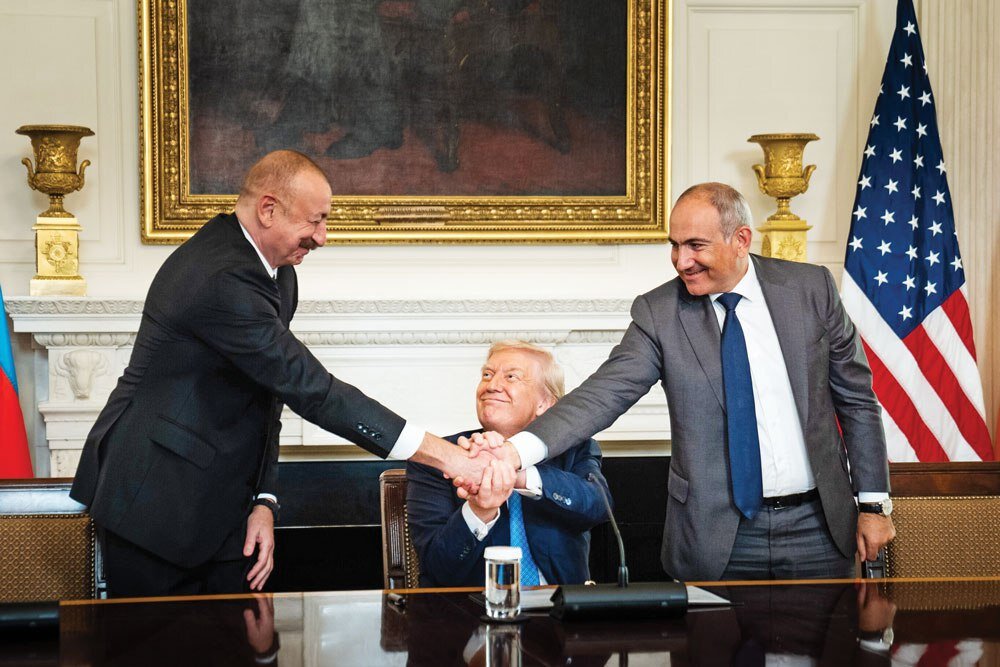“Iran will act, with or without Russia”

TEHRAN – Senior Adviser to the Leader of the Islamic Revolution on International Affairs, Ali Akbar Velayati, has reaffirmed that the Islamic Republic will act decisively to protect the stability and security of the South Caucasus — with or without Russia — in the wake of a U.S.-brokered peace agreement between Armenia and Azerbaijan.
The deal, signed on Friday in the presence of the U.S. President Donald Trump, follows decades of conflict over Karabakh and comes after Azerbaijan’s swift recapture of the region in September 2023. While the agreement’s full text has not been made public, it reportedly centers on the creation of a trade and transit route — dubbed the “Trump Corridor” — connecting Azerbaijan to its Nakhchivan exclave through Armenian territory.
Under the arrangement, Washington would gain exclusive development rights over the corridor, which the White House claims will boost regional energy exports. Velayati, however, warned that the so-called Trump Corridor would redraw borders, isolate Armenia, and severely restrict Iran’s own access to the Caucasus — leaving it connected to Turkey alone.
“Is the South Caucasus some ownerless land for Trump to lease?” Velayati told Tasnim. “This is one of the most sensitive regions in the world. Such a passage will not become Trump’s property — it will become a graveyard for his mercenaries.”
He described Trump’s remarks as “naïve” and “hollow,” likening them to “someone here deciding to lease the Panama Canal.” The veteran diplomat stressed that the plan was not a commercial project but a geopolitical conspiracy, one that would bring NATO forces — through Turkey and other members — dangerously close to Iran’s northern borders.
“Just as President Putin warned about NATO encroaching on Russia through Ukraine, we will not allow NATO to approach Iran,” Velayati said. “Prevention is better than cure.”
Recalling past Iranian military readiness, Velayati noted that under the late Lieutenant General Mohammad Bagheri, the Armed Forces held multiple drills in northwest Iran to signal Tehran’s determination to block the project. He also pointed to Armenian Prime Minister Nikol Pashinyan’s earlier visit to Tehran, during which the Armenian leader reportedly acknowledged the corridor’s “conspiratorial” nature and voiced agreement with Iran’s opposition.
On U.S. claims that the route would transport Caspian energy, Velayati reiterated that the sea belongs solely to its littoral states and that any transit requires their collective consent. Joint Iran–Russia naval drills in recent weeks, he said, were meant to deliver a clear warning to foreign actors.
Velayati further stressed that linking Nakhchivan to mainland Azerbaijan does not require such a corridor, as the connection can be made through Iranian territory. “The geopolitical balance here is not just about Azerbaijan and Armenia — any change affects Iran’s borders, and we will defend our interests with full force,” he asserted.
He concluded by praising the vigilance of Iran’s northern provinces — from West and East Azerbaijan to Mazandaran and Khorasan — in resisting foreign plots throughout history, vowing that they will again stand firm against any designs on the region.
Also in a separate statement, the Iranian Foreign Ministry welcomed the Armenia–Azerbaijan peace deal as “an important step toward lasting stability” while warning of the dangers of foreign interference.
The ministry said Iran supports regional connectivity projects that respect national sovereignty and territorial integrity, and it reaffirmed readiness to work with both Baku and Yerevan through mechanisms such as the 3+3 Regional Cooperation Platform.
Tehran also underscored its awareness of longstanding Western ambitions to extend influence from the Caucasus into Central Asia — a strategy aimed at isolating Iran and Russia while dominating smaller regional states.
In remarks delivered on Saturday, Russian Foreign Ministry Spokesperson Maria Zakharova also stressed the need for normalization of relations between the two countries based on mutual interests and without interference from outside powers.
Zakharova said the Russian Federation seeks to create “a stable and prosperous region” in the South Caucasus, and considers one of the main conditions for this goal to be “comprehensive normalization of relations between Azerbaijan and Armenia, taking into account the interests of the peoples of both countries.”
By Soheila Zarfam
Leave a Comment